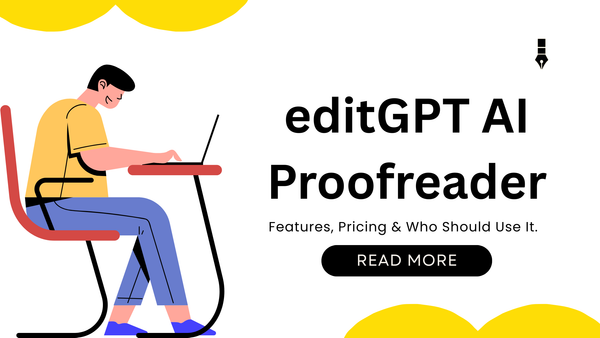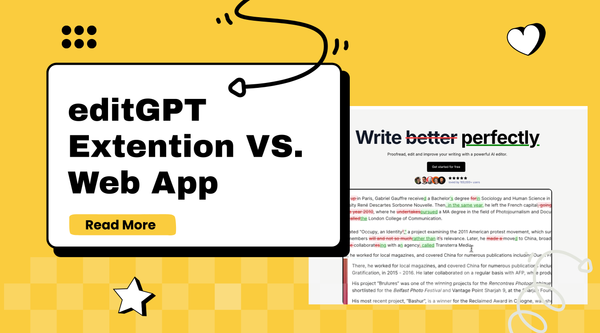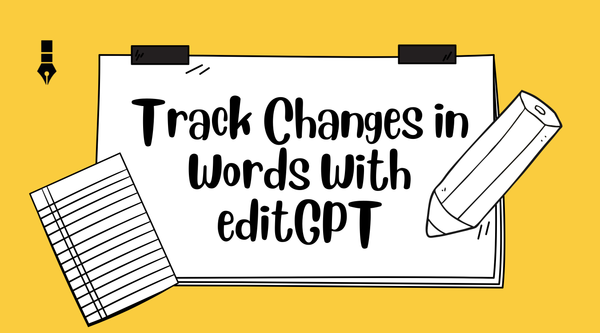Wordvice AI vs. EditGPT: Which Proofreading Tool is Best?
After using it for a while, I noticed it didn’t always provide the depth I needed.
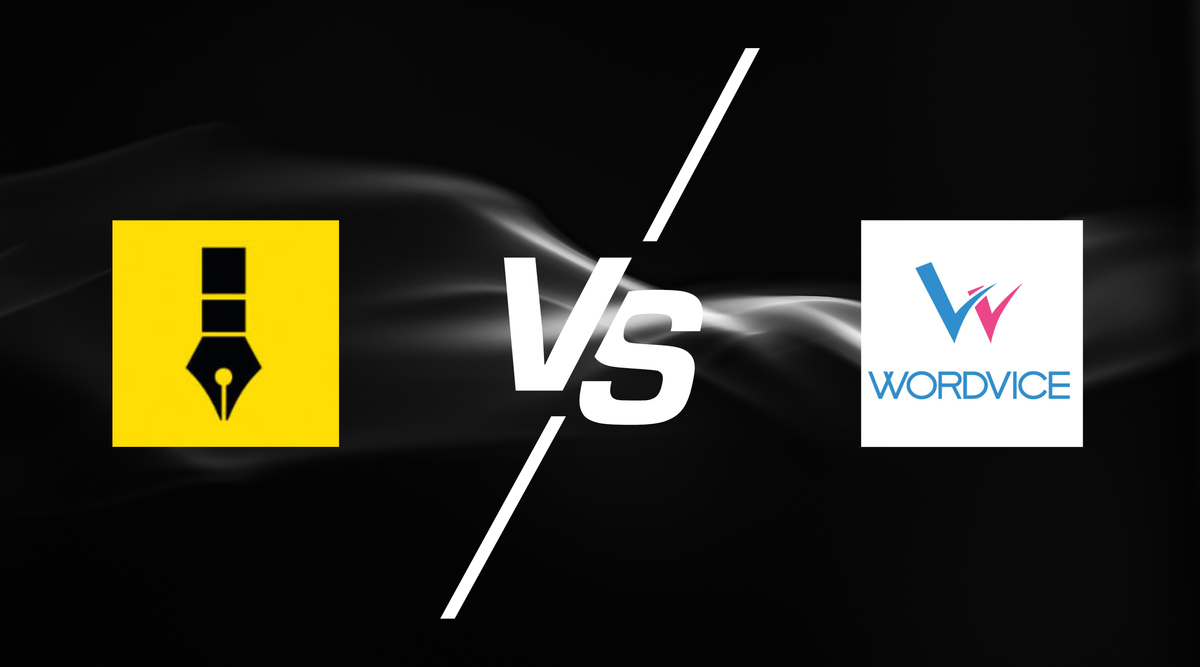
I’ve been on the hunt for the best AI writing assistant for a while now. Like many writers, students, and proofreaders, I started with the obvious choice: Grammarly.
The tool everyone seems to know does a decent job of catching typos and grammar slips. After using it for a while, I noticed it didn’t always provide the depth I needed. This was especially true for proper proofreading. That pushed me to look for alternatives that could go further.
I ended up trying Wordvice AI and editGPT. Both proofreading tools position themselves as stronger Grammarly alternatives, each with their own style and approach. Over the past few weeks, I tested them on essays, blog drafts, and even everyday emails.
In this post, I’ll walk you through how each one performed, focusing on the things that matter most to me: proofreading accuracy, usability, and overall value.
| Feature | Wordvice AI | EditGPT |
|---|---|---|
| Core Focus | All-in-one AI editor (proofreading, paraphrasing, summarizing, translation) | Proofreading, rewriting, tone adjustment, track changes |
| Proofreading Style | More formal, academic tone | Keeps your voice, natural flow |
| Transparency | Shows suggestions inline, sometimes with explanations | Track-changes view (accept/reject edits) |
| Free Plan | 5,000 words/month, 500 words per check | 10,000 words/month, 600 words per check |
| Paid Plan | $19.95/month (Premium) | $12/month (Pro) or $25/month (Elite) |
| Academic Tools | Strong: plagiarism checker, citation style, paraphraser | Basic support, but not academic-specific |
| Integrations | Chrome extension, Microsoft Word add-in | Google Docs integration, Word import/export with track changes |
| Ease of Use | Feels like Quillbot/Grammarly, traditional UX | Lightweight, simple, user-friendly |
| Best For | Academics, researchers, formal documents | Students, bloggers, proofreaders, everyday writing |
| Verdict | Good all-rounder, especially for academic use | Best Grammarly alternative for proofreading-first writing |

What is Wordvice AI?
Wordvice AI is one of the alternatives to Grammarly I tested when I wanted something that felt more complete than just grammar and spell checks. It’s an online AI writing assistant that combines several tools under one roof: a proofreader, a paraphraser, a summarizer, and even a translator.
Instead of just pointing out a missing comma, it can rephrase sentences for clarity, shorten overly long passages, or translate text if you’re working across languages.
When I tried it, I noticed it has a very academic and professional feel. The proofreading tool didn’t just fix spelling mistakes; it also flagged tone issues and suggested more formal wording, which could be useful for research papers, college essays, or professional reports.
The paraphrasing option came in handy when I wanted to restate sentences without changing the meaning, and the summarizer worked well for condensing long text into shorter versions.
Overall, Wordvice AI feels like a solid all-rounder. It doesn’t replace a human editor, but as a Grammarly alternative, it offers more variety in its toolset and seems especially tailored for students and researchers who want a formal polish on their writing.
What is editGPT?
editGPT is another tool I tested while looking for a reliable Grammarly alternative, and it stood out for its proofreading features.
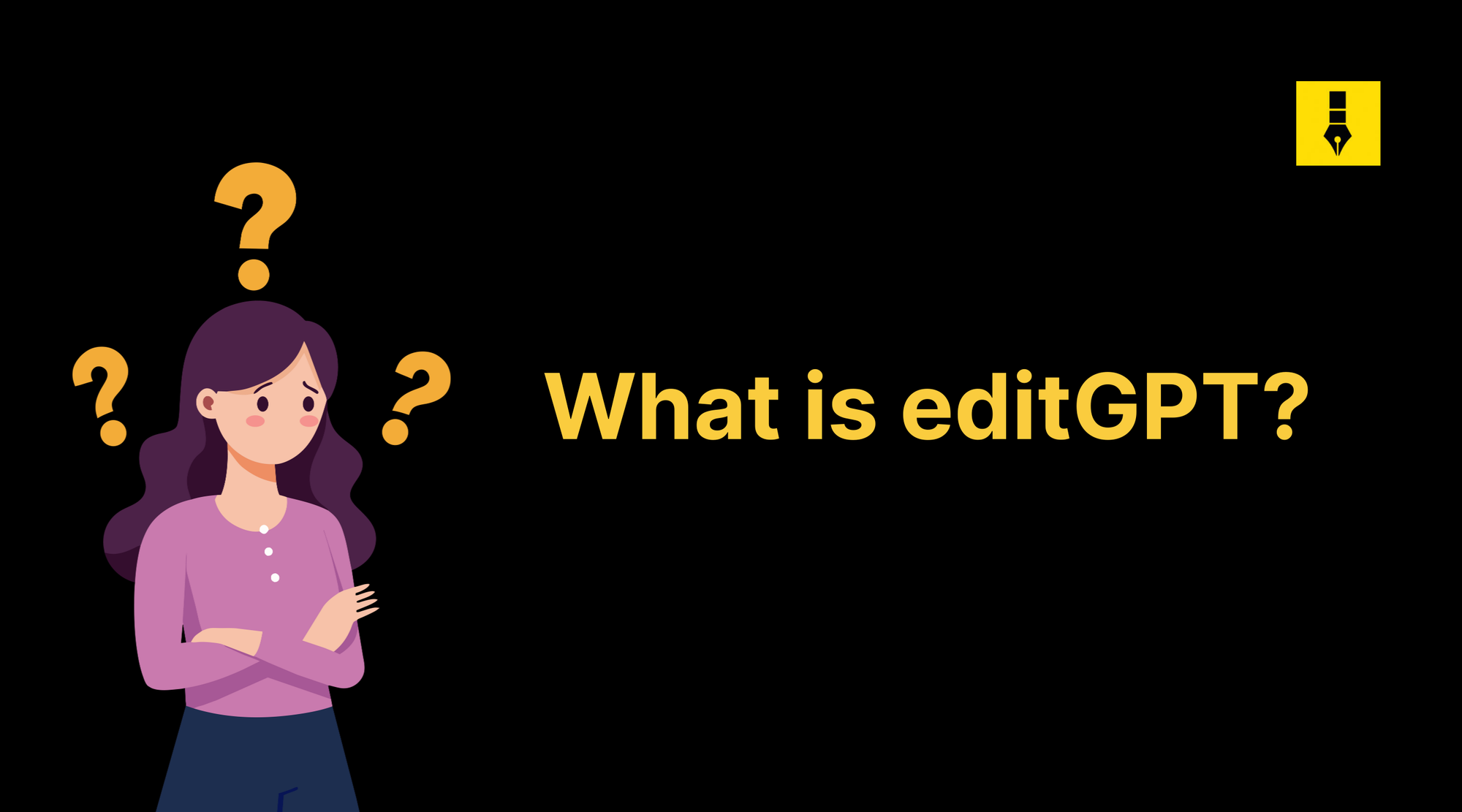
Instead of just giving me a new version of my text, it shows edits like track changes. This way, I can see what changes occurred and decide if I want to accept them. This felt closer to working with a human editor.
What I noticed while using editGPT is that it doesn’t rewrite text in a way that erases personality. My sentences still sounded like me, just cleaner and more polished. It also has options for improving flow, clarity, or adjusting tone, so it goes a bit further than just grammar and spelling checks.
Another practical feature is that it integrates with Google Docs and supports Word documents, making it easy to use in everyday writing. Overall, editGPT gave me the sense of control and transparency I look for in a proofreading tool.
Price Comparison: Wordvice AI vs editGPT
Pricing often makes or breaks whether I stick with an AI writing assistant long-term. Both Wordvice AI and editGPT offer free plans, which is great if you just want to test them without pulling out your card.
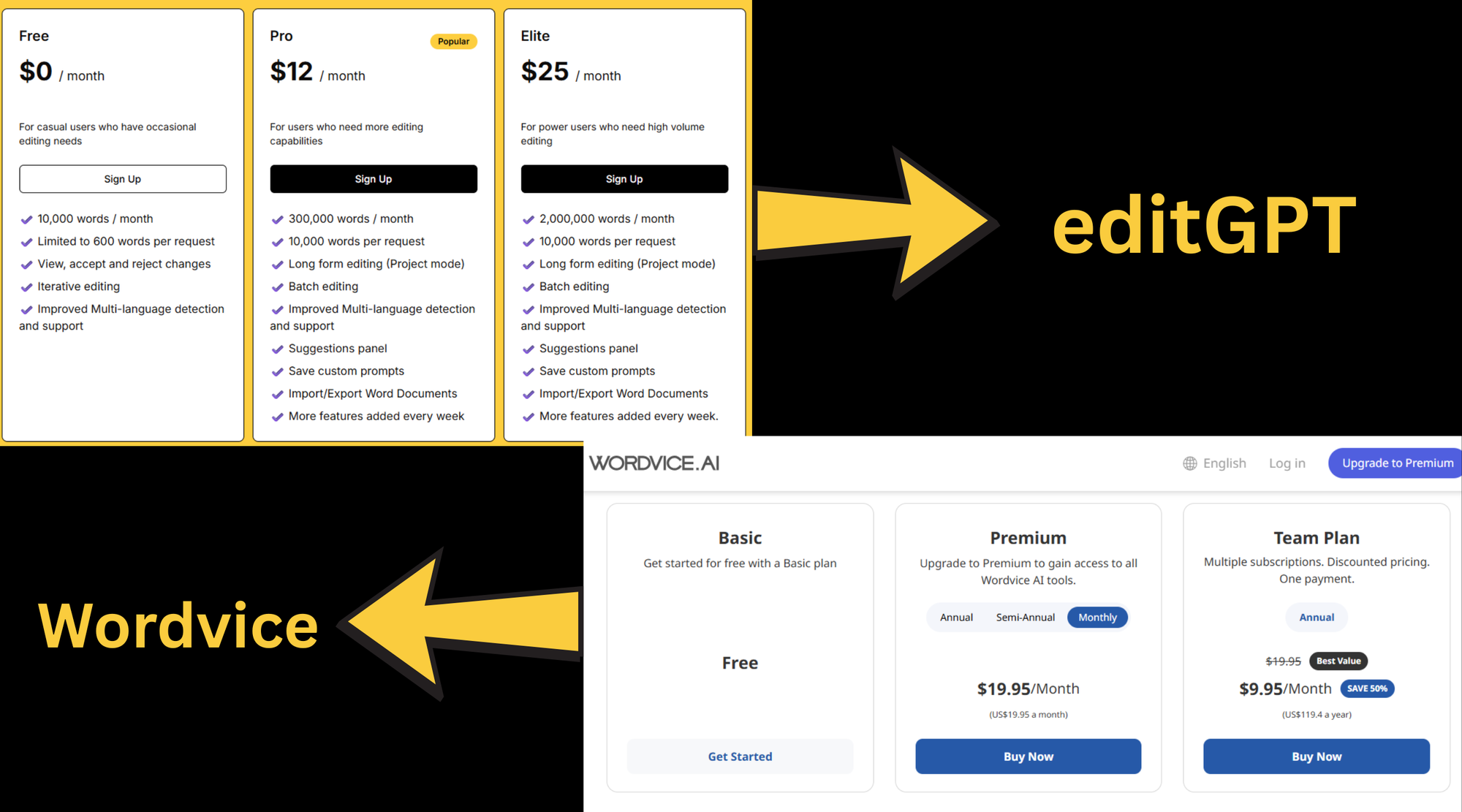
Wordvice AI’s Basic plan is free but limited. You can proofread shorter text, though each check is capped at 500 words, and the monthly allowance is 5,000 words.
To unlock the full set of tools, including the plagiarism checker, all paraphrasing modes, and larger document uploads, you’ll need the Premium plan, which is $19.95 per month if paid monthly (even more expensive than Grammarly!). There’s also a team plan at $9.95 per month per user when billed annually.
editGPT, on the other hand, feels more budget-friendly for proofreading. The Free plan gives you 10,000 words per month and allows up to 600 words per request, already double what Wordvice AI’s free version offers.
For more, the Pro plan is $12 per month and covers 300,000 words, while the Elite plan is $25 for a massive 2 million words. Both paid tiers include extras like long-form editing, batch editing, Word import/export, and saving custom prompts.
When I compared the two, I found Wordvice AI’s premium plan was more expensive for fewer features, especially if proofreading is your main need. editGPT’s free version stretches further, and its Pro tier is enough to handle almost any workload at a lower price point. For value, editGPT came out ahead.
Real-World Tests
Talking about features is one thing, but I really wanted to see how these tools performed in practice. So, I tried them out in a few everyday scenarios: emails, grammar checks, and general usability.
Email Correspondence
I wrote a quick email draft to a professor on purpose with some mistakes: “Hey Prof, hope you’re doing good. I wanted to give u an update on my project.” Both tools caught the obvious problems.
Wordvice AI suggested changing “doing good” to “doing well” and “u” to “you,” and it nudged me toward a more formal greeting. The final result was clean and professional, but it felt like a traditional proofreading pass.
editGPT made similar corrections but showed them in track changes. It maintained the “Prof” fixed “doing good” and highlighted each adjustment so I could see exactly what changed. I liked that it kept my casual tone intact while making it polished. It didn’t feel like it rewrote the whole email, just cleaned it up so it sounded like me, only sharper.
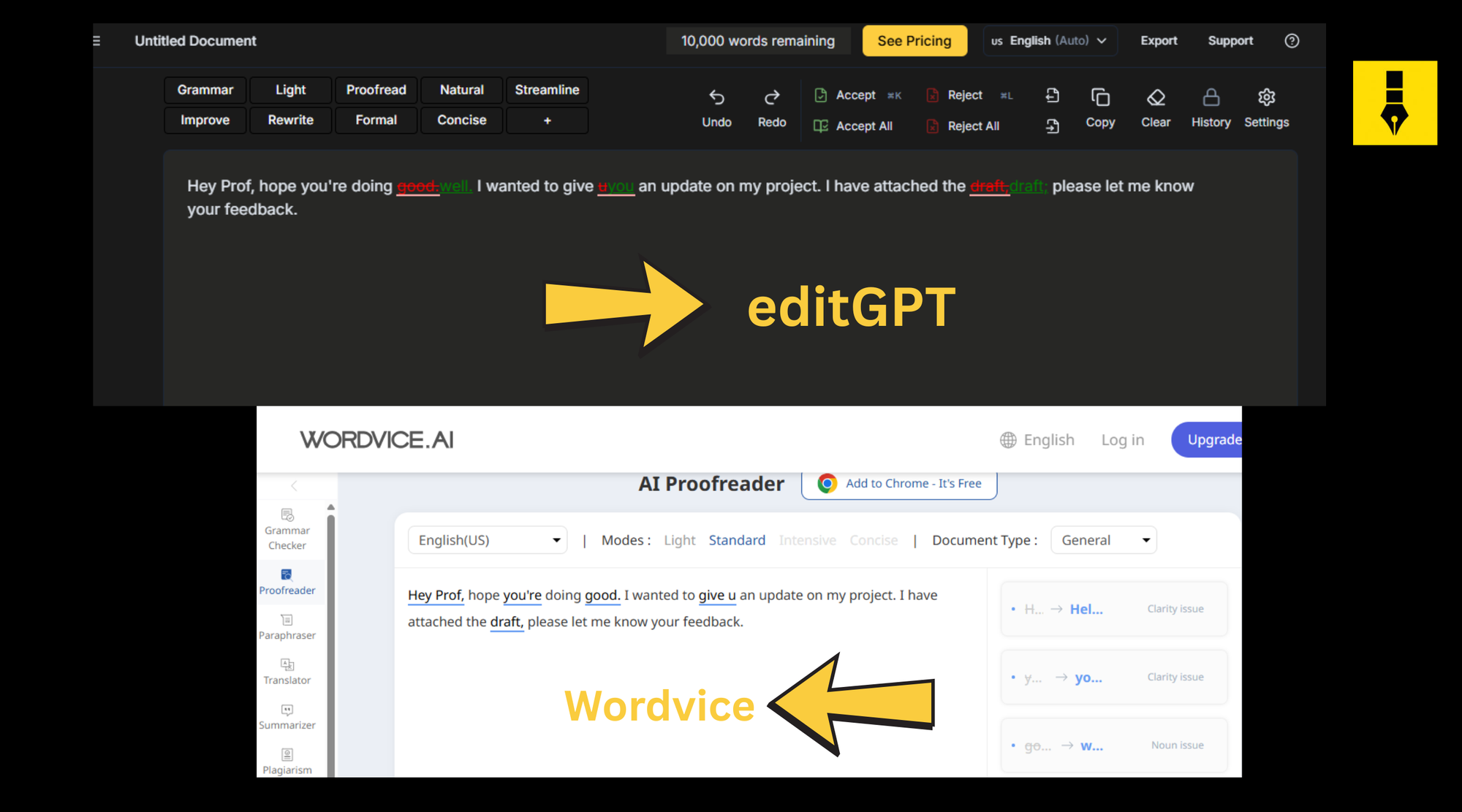
Grammar Checks: Wordvice Ai vs editGPT
For something more technical, I tested subject-verb agreement. I wrote: “The results of the experiment is promising.” Wordvice AI flagged “is” and suggested “are,” even adding a little explanation about subject-verb agreement. That was helpful if I wanted to learn the rule.
editGPT also changed “is” to “are,” but again, the change was highlighted right there in the text. I didn’t get a grammar lesson, but I could clearly see the fix. For me, this worked better when I just needed quick proofreading.
Usability and Speed
On the usability side, Wordvice AI works through its own web editor. It’s straightforward; paste your text, and the corrections show up instantly. For longer documents, it was solid, but I found myself going back and forth copying text if I wasn’t already in its editor.
editGPT felt lighter. Since it runs as a Chrome extension connected to ChatGPT, I could use it right where I was already drafting or editing. It also integrates with Google Docs and lets me import/export Word files with track changes preserved.
That meant less juggling between platforms, and edits appeared almost instantly.
UX and Originality: Wordvice Ai vs. editGPT
One thing I noticed while testing Wordvice AI is that the overall experience reminded me a lot of QuillBot. It’s functional, and the features (proofreader, paraphraser, and translator) are all there, but the interface doesn’t feel particularly fresh or unique.
The design is serviceable, but it lacked the originality or personality that would make me want to spend more time inside it.
By contrast, editGPT felt lighter and more personal. Because edits appear in a track-changes format and keep my tone intact, I felt like the tool was working with me instead of just rephrasing text in a generic way.
It gave me control while still saving me time, which is what I actually want from a proofreading assistant.
Wordvice AI vs editGPT: Which Grammarly Alternative Do I Recommend?

After spending time with both tools, I can honestly say that Wordvice AI and editGPT each have their strengths. Wordvice AI is a solid all-rounder. It’s not just a proofreader but also a paraphraser, summarizer, and translator rolled into one.
If you’re an academic, a researcher, or someone working on very formal documents, Wordvice AI makes sense. It has the kind of features that feel designed for long, structured writing projects where tone and accuracy really matter.
That said, when it comes to my own day-to-day writing, I’ve found myself using editGPT far more often. The reason is simple: it’s built for proofreading first.
The track-changes view, the way it keeps my voice intact, and the fact that I can plug it into Google Docs or ChatGPT without breaking my workflow make it feel lighter and more natural.
I don’t need bells and whistles most of the time; I just need my writing polished quickly and clearly.
So, while Wordvice AI is a good option if you need multiple tools in one, my recommendation for anyone looking for a Grammarly alternative that truly prioritizes proofreading is editGPT. It’s the one I rely on daily.
Frequently Asked Questions: Wordvice Ai vs. editGPT

What are the main differences between Wordvice AI and editGPT?
Wordvice AI is an all-in-one editor with proofreading, paraphrasing, summarizing, and translation features, priced around $19.95/month. editGPT combines proofreading, rewriting, tone adjustment, and track changes for transparency, starting at $12/month. In practice, editGPT feels lighter and more transparent, while Wordvice AI leans academic.
Is editGPT free to use, and does Wordvice AI have a free version?
Yes, both offer free plans. Wordvice AI allows 5,000 words monthly with 500 words per check. editGPT offers 10,000 words monthly with 600 words per request. Paid plans expand limits: Wordvice AI Premium at $19.95/month, editGPT Pro at $12/month.
Which tool is better for academic writing?
Wordvice AI suits academics and researchers with its focus on tone, formality, and extra features like plagiarism checking. editGPT can handle essays too, but it’s more versatile for daily writing and content creation beyond academia.
Which one is more user-friendly?
editGPT is easier to use in everyday writing. It integrates directly with Google Docs and ChatGPT, shows edits transparently with track changes, and feels lightweight. Wordvice AI is straightforward too, but its editor feels more traditional
Can I use Wordvice AI or editGPT with Google Docs or Word?
Yes. Wordvice AI has a Microsoft Word add-in and Chrome extension. editGPT integrates with Google Docs and supports Word import/export with track changes.

Next Step
After putting Wordvice AI and editGPT through their paces, I can say both have their strengths.
Wordvice AI is flexible and great for academic or formal writing. It is especially useful if you need extra tools like paraphrasing and translation.
However, for me, editGPT stood out as the proofreading-first Grammarly alternative that actually fits into my daily workflow. It keeps my voice the same, shows changes clearly, and works well with the tools I already use, like Google Docs.
If your main priority is making your writing clearer, cleaner, and still you, editGPT is the one I’d recommend. It feels lighter, more natural, and gives better value if proofreading is what you value most.
I’ve also reviewed the 10 best Grammarly alternatives to help writers, students, and proofreaders find the right fit. To explore even more options beyond Wordvice AI and editGPT, check out that guide HERE.
Recommended Reading
- Video review: This AI Text Editing Tool Is FLAWLESS!
- Best AI Proofreader Tools of 2025 (Tested for Accuracy, Speed & Tone)
- editGPT vs Grammarly vs Quillbot: Which Writing Tool is Best?
- The Best AI Proofreaders That Actually Work (Free & Paid)
- Try editGPT
- Review: Wordtune Editor vs editGPT
- Review: Grammarly vs editGPT
- Review: ProWritingAid vs editGPT
- Review: Hemingway Editor vs editGPT
- Review: 10 Best Grammarly Alternatives for Writers in 2025/2026
- Review: editGPT vs Trinka AI: Which is the best Grammarly alternative?
- Best AI Tools for College Essay Editing in 2025
- What is the best AI Proofreader?
- Best AI Proofreader Tools of 2025 (Tested for Accuracy, Speed & Tone)
